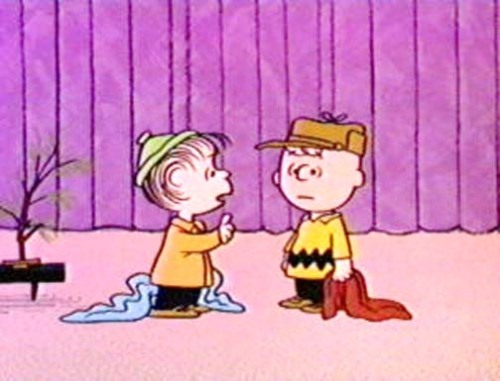"I would like to say 'This book is written to the glory of God', but nowadays this would be the trick of a cheat, i.e., it would not be correctly understood."--Ludwig Wittgenstein
"Life can only be understood backwards, but it must be lived forwards."--Soren Kierkegaard
Tuesday, December 18, 2018
What Luke's Nativity Is All About
For some reason my comments are "down" in my browser (I can access them on my phone, but thumb-typing is not my forte. Real typing isn't either, but that's another matter.), so I can't post a long comment to this post; instead, I'll drag the conversation over here.
Not to argue with the original post, or the revolutionary nature of the Magnificat, but to point out it is part and parcel of the nativity story in Luke (the only everybody loves because Linus recited part of it on-stage, and because it has angels and shepherds and a "manger," which we all forget is not a fancy word for "stable" but actually means "eat" in French, which leads me to believe it derives from a very similar Latin root), and the nativity story is part and parcel of Luke's entire gospel; you know, the one with these "Beatitudes":
Congratulations, you poor!
God's domain belongs to you!
Congratulations, you hungry!
You will have a feast.
Congratulations, you who weep now!
You will laugh.
Damn you rich!
You already have your consolation!
Damn you who are well-fed now!
You will know hunger.
Damn you who laugh now!
You will learn to weep and grieve.
I've said more than a bit about those, which I won't bother to repeat here. They also have a strong connection to the Hebrew Scriptures, a connection often overlooked in the desire to make the "Old Testament" about blood and thunder, and the New Testament about "hippie Jesus." The post at Thought Criminal underlines the connection between all the books of the Bible; I just wanted to underline that point.
And, of course, Luke's gospel includes my favorite gospel talking point, on the nature of soteriology and faith and forgiveness. My commentary on that is imperfectly aggregated here. There is a great deal about Luke's gospel that is absolutely revolutionary. We would do well to remember that. I doubt Charles Schulz meant to be challenging when he included the first 14 verses of the second chapter of Luke in his TV special over 50 years ago. But that's the part of the special everyone remembers. Whether they understand it, like the eunuch in the second part of Luke's gospel, the Acts of the Apostles, well, that's another matter.
Subscribe to:
Post Comments (Atom)


No comments:
Post a Comment